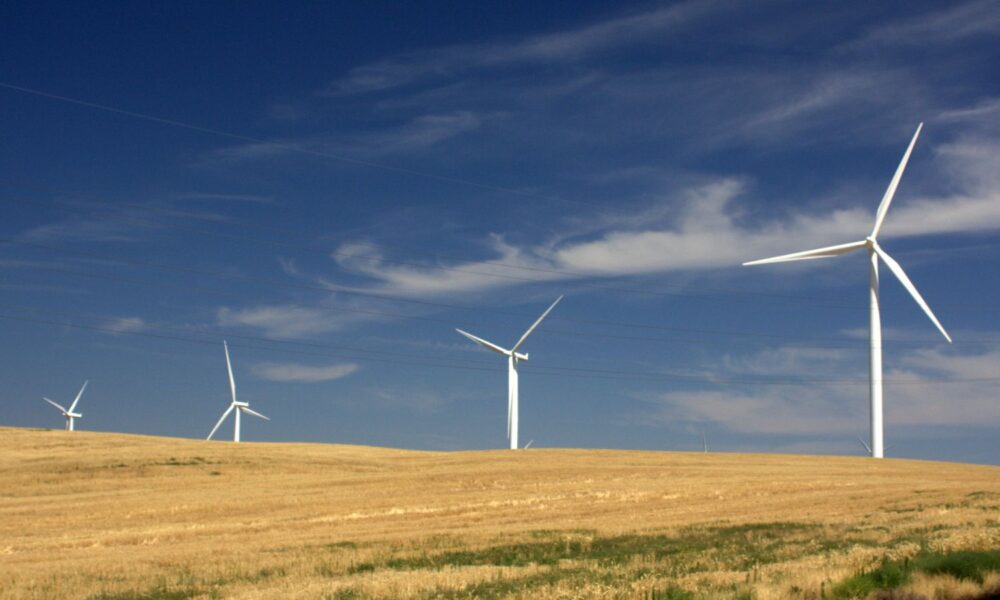Michigan legislators recently passed a series of energy-related bills that Gov. Gretchen Whitmer is expected to sign into law tomorrow. The package represents progress on a number of fronts. It adds Michigan to the growing list of states, including Illinois and Minnesota, that have adopted standards to increase renewable energy on the grid and move toward 100-percent decarbonization of the power sector. It also will expand energy efficiency programs, streamline utility-scale renewable project siting approvals, and more.
But the package also is significant for what is not in it. Specifically, it weakened or completely eliminated environmental justice communities’ key priorities regarding affordability, reliability, and equity. Going forward, Michigan policymakers must incorporate these policies, which will mean standing up to utilities and other corporate interests.
What’s in the bills?
Senate Bill (SB) 271 requires utilities to achieve, at a minimum, renewable energy-generated electricity sales of 50 percent in 2030 and 60 percent in 2035. Factoring in the final legislation’s details about calculating the percentages and how utilities can obtain credits for renewables, the standards are essentially a backstop to what the state’s major utilities, DTE and Consumers Energy, have already committed to do in settlement agreements (see here and here). Codifying a floor for renewables in state law is helpful, but clean energy advocates must keep pushing utilities to move more quickly to incorporate higher levels of renewables not only to cut emissions faster, but also because renewables are the most cost-effective resources for ratepayers.
Additionally, SB 271 requires utilities to achieve a “clean energy” portfolio of at least 80 percent in 2035 and 100 percent in 2040. However, the bill’s definition of what constitutes clean energy includes nuclear power (which doesn’t emit carbon but isn’t “clean”) and fossil gas power plants that capture and store at least 90 percent of their carbon emissions. The Michigan Public Service Commission (MPSC) will ultimately determine whether such gas plant projects—if proposed—are technically and economically justifiable. Even so, it is concerning that legislators included fossil gas in the definition of clean energy given the risk of continuing our reliance on fossil fuels and the impact of emissions from gas production, transportation, and combustion. Giving the MPSC the final decision on what counts as clean energy may force environmental justice advocates to take up the fight once again to protect their communities.
Notably, SB 271 encourages the growth of energy storage in Michigan by setting a statewide target of 2,500 megawatts of capacity. It also encourages distributed generation, such as rooftop solar, by raising the cap when utilities can deny customers the ability to connect their systems to the grid from 1 to 10 percent of the utility’s average annual load. This is a welcome improvement, but it was a result of compromise and negotiation with utilities—and it does not go far enough. There should be no limit on customers who want to install solar, and they should be better compensated for the value locally owned solar provides to the grid. Regrettably, community solar was left out of SB 271 entirely.
There are some additional notable provisions from the package of approved bills:
- SB 273 increases utility energy efficiency standards from 1 to 1.5 percent of electricity sales, but at a lower level than the 2 percent clean energy advocates proposed and that utilities have previously achieved. Importantly, the bill requires utilities to spend at least a minimum level on programs for low-income households and communities, although not at a level that aligns with Justice40 amounts.
- SB 502 includes additional public interest criteria that the MPSC must consider when reviewing utility integrated-resource plans. That criteria should be applied to other significant utility filings, including rate cases, but they were scaled back in the final legislation. The bill also increases funding for consumer, environmental, and other public interest groups to participate in MPSC cases.
- House Bills 5120 and 5121 reform the siting and approval process for utility-scale renewable projects (click here for a Michigan Energy Innovation Business Council fact sheet).
- SB 277 allows farmers to lease their land for solar projects while maintaining farmland preservation standards.
- SB 519 creates the Michigan Community and Worker Economic Transition Office to plan and coordinate efforts supporting workers and communities during the transition from fossil fuels.
What still needs to be done?
An equitable clean energy transition is not just about the technologies used to generate electricity. It must include changes that address fundamental injustices under our current system.
Communities should be able to develop locally owned solar and utilities should be mandated to provide bill credits to customers that subscribe to such community solar facilities. The legislature should advance policies such as those contained in HB 4464 and SB 152/153 to require that utilities create community solar programs, expedite MPSC review and approval of those programs to leverage federal funding, and allow greater numbers of subscribing customers to benefit from community solar projects.
Additional policies that state decisionmakers should advance in accordance with recommendations by the Michigan Environmental Justice Coalition and other groups:
- Enact affordability policies that cap individual utility bills if household income is below a certain level, ban electricity shutoffs, and increase the compensation available to customers who experience outages.
- Require that cumulative impacts, or the full spectrum of pollution sources, are considered in policies and permitting regulations.
- Following the lead of Colorado, Connecticut, and Maine, ban investor-owned utilities from using ratepayer dollars for political contributions and enact other lobbying-related ethics reforms to ensure monopoly companies do not have outsized leverage to block measures supporting a cleaner, more affordable, just energy system.
Moving ahead
A little more than a year ago, it was difficult to imagine any significant progress on clean energy happening in Michigan’s statehouse. But, with new legislators taking office in 2023, advocates joined with representatives and senators to prioritize clean energy action and hammered out a package that could pass. Unfortunately, utilities’ undue influence in the negotiating process prevented the passage of stronger and more equitable legislation by eliminating crucial provisions addressing the concerns of environmental and energy justice advocates.
In other words, our job is not done. Disadvantaged communities’ priorities must be fully addressed. We must not allow utilities and other corporate interests to continue to block critical reforms addressing affordability, reliability, and environmental justice. The Union of Concerned Scientists will continue to work with our partners, allies, Gov. Whitmer, and Michigan legislators to secure an equitable clean energy future for all Michiganders.

